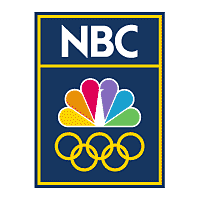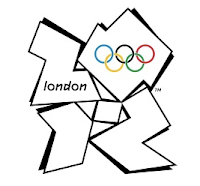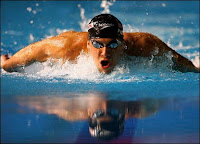
Have had a few occasions this week to contemplate poker’s popularity and its place in the “big picture.” Found myself recognizing several different perspectives on poker, all coming from different angles and in different contexts -- most of which were not the usual ones I encounter when it comes to pokery-type observations. As I considered whether I might be able to bring ’em all together here in a Friday post, I realized they might all add up to a kind of commentary on the current position of poker in the “mainstream” of society and/or culture.
These anecdotes begin as somewhat personal in nature, then become gradually less so. I present ’em here for yr consideration as to whether they add up to anything or not.
1. Week started with a consulting visit with an accountant regarding this “freelance writing” gig I’ve found myself pursuing ever more earnestly over the last couple of years. Thought it might be prudent tax-wise to look into whether I should be thinking about declaring certain expenses, establishing an LLC, or contemplating any other moves to increase the profitability of this here side job.
Won’t get into specifics, but there was something novel (for me) about sitting there and telling my “story” to a person I’d never met before, including sharing detailed info about my hobby (online poker), the blog and its history, getting recruited to write for
PokerNews, and so forth.
As I described all of these things, I couldn’t help feeling a bit of hubris about it all. Maybe more than a bit. I mean, hell, it is a “success” story, in a way, involving winning money at poker, earning some attention (and some cabbage) for writing, and other stuff all of which might be thought to reflect generously on the storyteller.
My audience wasn’t all that moved, though. He was friendly, professional, and courteous, but I could tell none of this really meant much to him. Of course, a big part of his non-response probably came from the realization that I probably didn’t really need his services, but his few comments about poker pretty clearly revealed a less-than-enthusiastic attitude, miles away from the instinctive interest the rest of us maniacs have when it comes to poker.
2. Then came the ESPN broadcast of that final table on Tuesday which I worked (
wrote about it earlier in the week). A few friends and family members watched in order to try to spot glimpses of me in the background. Meaning there were a few folks watching poker this week who never watch it otherwise, and who frankly cannot fathom the appeal of a show like the one ESPN puts on. Again, talking to them about the show demonstrated pretty clearly how little poker signifies to most.
Favorite moment came when my father called to say he’d caught a glimpse of me. He’d been watching
Family Guy, but had flipped over during a commercial and just happened to see me. As much as I like poker, I could see watching
Family Guy instead, too, if I were in his place.
3. I spent a few off-hand minutes this week enjoying this very cool, belated birthday gift from my brother, a DVD collection of the first forty years of
Rolling Stone magazine. All of the issues have been scanned and are searchable by keyword. While searching for old articles about Brian Eno and Hüsker Dü, I thought it might be interesting to look up “poker” and see how this arbiter of popular culture had seen fit to report and/or opine on the game over the last forty years.
I’ll be writing more about what I found next week, but I’ll go ahead and share one finding with you today. It is safe to say that poker -- particularly so-called “professional” poker -- pretty much did not exist for
Rolling Stone until the last couple of years. And if you think about it, did it for most other folks, either?
4. On Thursday, I saw where
doubleas had shared an excerpt from a sports blog he reads called Two in the Box.
The post from which the quote came began as a response to the ongoing Brett Favre saga. The author of the post, Monkey, was expressing his fatigue with the nonstop, wall-to-wall coverage of Favre on ESPN.
That rant led Monkey to fashion a top ten list “of others I could live without,” one item of which was “Professional Poker Players.” Says Monkey, “The infatuation period is finally over, and all that is left is grown men acting like 10-year-olds every time they get an (un)lucky card. Seriously, guys like Mike Matusow & Phil Hellmuth are not modern-day cowboys; they are immature narcissists who are too emotionally unstable to hold day jobs.”
Monkey has a point, we must admit. A couple, actually. Of course, those of us who pay attention know that adults acting childishly is not “all that is left” of televised poker. But it
is more than understandable how that might seem the case to those who aren’t tuned in as closely. Even so, it’s hard to argue with the observation that “the infatuation period is finally over,” particularly when we compare poker’s place in popular culture today to where it was a few years ago.
5. Finally, with the 2008 Summer Olympics kicking off today, I recalled how four years ago there was a tongue-in-cheek campaign to get poker included as a sport this time around in Beijing. Does anyone else remember this? A website -- “Poker in Athens” -- even launched an online petition to have poker included at Beijing. (The site no longer exists.)
Here’s an old BBC article about it, the author of which jokingly suggests Brits should sign the petition, as the campaign represents “the best chance we have of winning a medal.” Oof!
Such a proposal was rightly considered a fun, distracting bit of human interest then. And while I have noticed a thread or two on the forums about how poker players might be chosen and ranked in an Olympic competition, I haven’t seen any similar petitions this time around. A silly idea, to be sure (even if
one thinks of poker as a sport), but not completely off-the-wall to have come up in 2004, even as a gag. No one’s thinking about poker that way today, though. Not even as a joke.
Like I say, just thought I would share these various perspectives and let you decide if they add up to anything.
Have a good weekend, all!
Labels: *the rumble, Brian Eno, ESPN, Family Guy, Hüsker Dü, Mike Matusow, olympics, Phil Hellmuth



 against an opponent with
against an opponent with 
 watches a flop bring three spades and is like the Broncos. Or a flop comes
watches a flop bring three spades and is like the Broncos. Or a flop comes 

 to put the queens way ahead, then a trey and a five bring a backdoor wheel and the all-in player is like Sweden and the U.S. today.
to put the queens way ahead, then a trey and a five bring a backdoor wheel and the all-in player is like Sweden and the U.S. today.





























